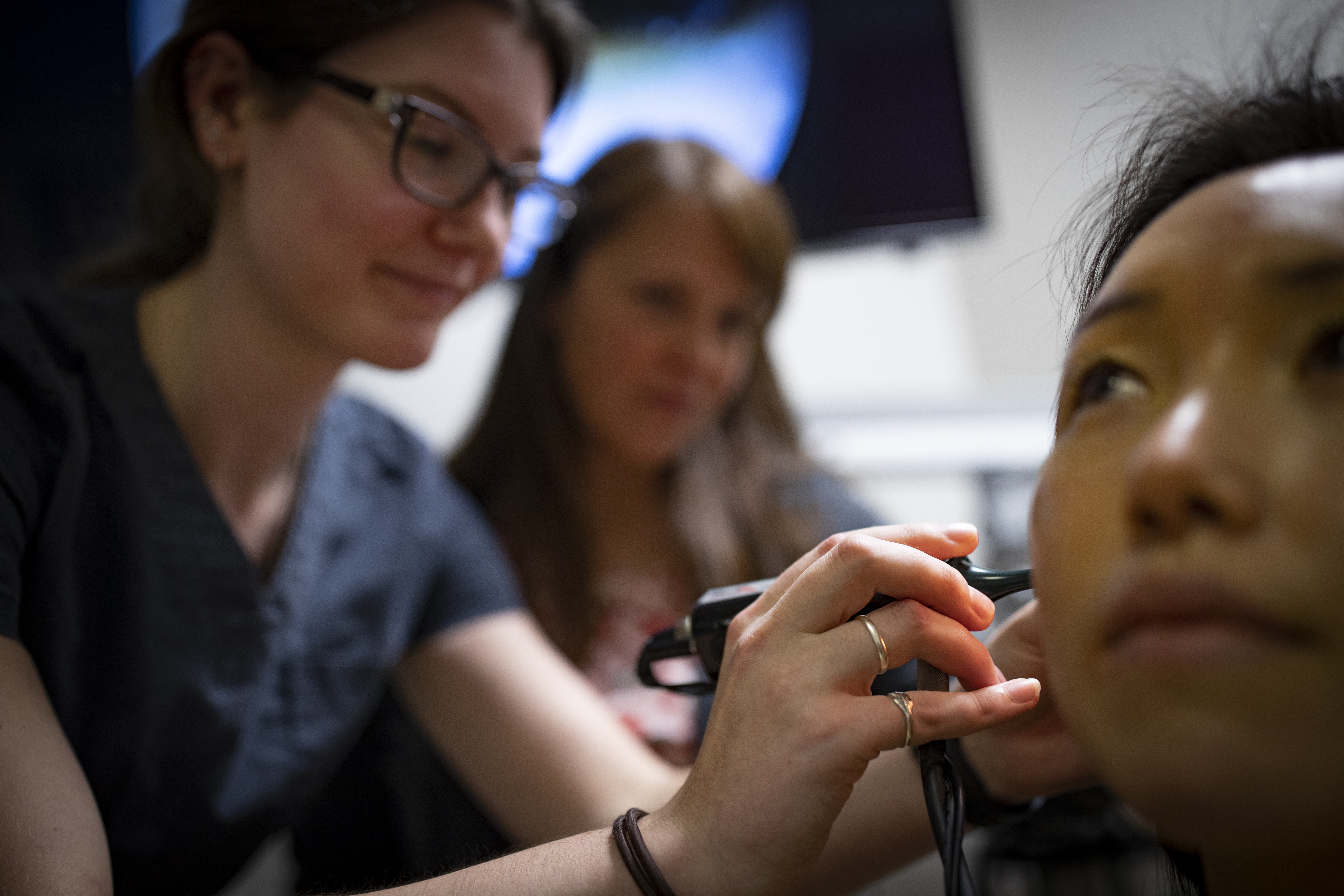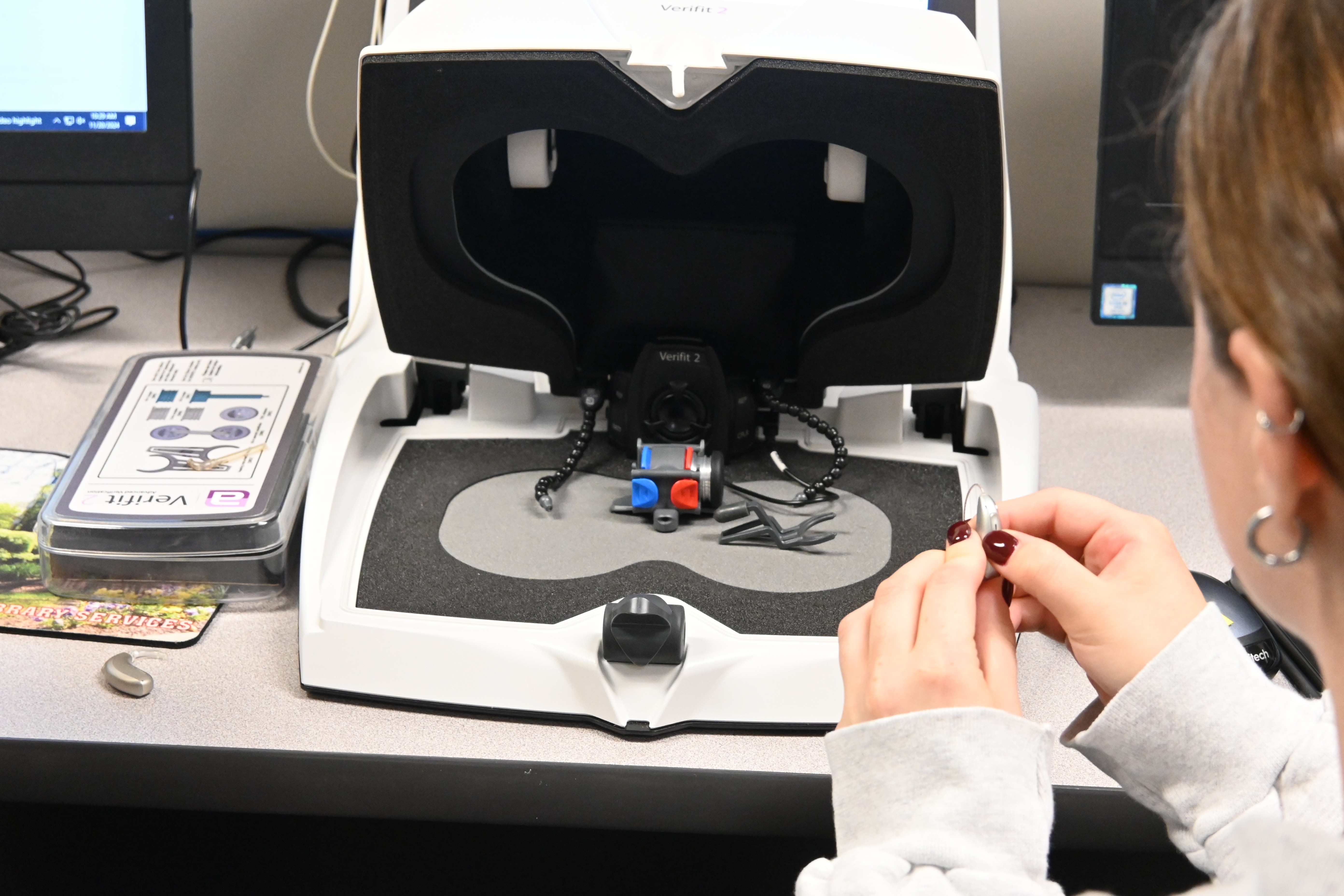October is Audiology Awareness Month: Tips for Healthy Hearing
October is Audiology Awareness Month. This month is used to recognize the work of audiologists as well as bring attention to the importance of hearing health and managing hearing loss.
To start, what is an audiologist? According to the American Academy of Audiology, they are highly trained professionals who specialize in diagnosing, managing, and treating hearing and balance issues. They work with people of all ages, from infants to the elderly.
 The doctors of audiology at the Pennsylvania Ear Institute (PEI) in Elkins Park, Pennsylvania have advanced training in specialty areas including pediatrics, geriatrics, vestibular testing, hearing aids, implantable devices, tinnitus, and cerumen removal.
The doctors of audiology at the Pennsylvania Ear Institute (PEI) in Elkins Park, Pennsylvania have advanced training in specialty areas including pediatrics, geriatrics, vestibular testing, hearing aids, implantable devices, tinnitus, and cerumen removal.
"Noise induced hearing loss is preventable. We encourage everyone to stop the damage before it starts! If you're experiencing muffled hearing or ringing in the ears (tinnitus) after noise exposure, you should see an audiologist as soon as possible,” said Dr. Lindsay Bondurant, director of the Pennsylvania Ear Institute of Drexel University.
Contrary to widespread belief, focusing on hearing health is not just for grandparents or the elderly, but for people of all ages. Our ears are constantly on the front lines, dealing with loud music from advanced headphone technology, long hours of media consumption, and the non-stop noise of daily life.
A common type of hearing loss is noise-induced hearing loss (NIHL). It’s a growing problem due to the amount of time people wear headphones/earbuds and blast music, or how often they frequent loud events. All of these actions over time can cause damage to the hair cells in the ears. Hair cells are tiny cells in your inner ear that interpret sound; once they are gone, they do not grow back.
To address issues like NIHL, audiologists create treatment plans to ensure patients' needs are met. These treatment plans start with comprehensive hearing tests to detect issues as early as possible, and based on the results may include further testing, communication strategies, or hearing aids. By prioritizing ear health and consulting with these experts, initiatives are being taken toward a lifetime of better hearing.
Here are a few tips to keep in mind to protect your hearing health:
Lower the Volume
Follow the 60/60 rule, a fundamental step in preventing noise-induced hearing loss. When using headphones or earbuds, listen at no more than 60% of the maximum volume for no more than 60 minutes at a time.

Use Hearing Protection
When attending loud events such as concerts, festivals, or sporting events, wearing ear protection is crucial. High-quality earplugs are the best option; they reduce the overall sound level while maintaining clarity, allowing you to enjoy the experience safely.
Allow for Quiet Time
Consistent exposure to noise can strain your auditory system and cause damage. Try to give your ears periods of quiet rest, especially after a long day of listening to music or being in a noisy environment.
Get Your Hearing Checked
Regular hearing screenings are a key component of preventative health. Scheduling an appointment with an audiologist for a baseline hearing test is simple and painless. The evaluation will provide a clear picture of your current hearing health and allow for early detection of any potential issues.
If you suspect some degree of hearing loss, contact the Pennsylvania Ear Institute (PEI). Our expert audiologists will assess your hearing and make recommendations on how to address your hearing needs. For more information on PEI’s services or to make an appointment, call 215.780.3180.